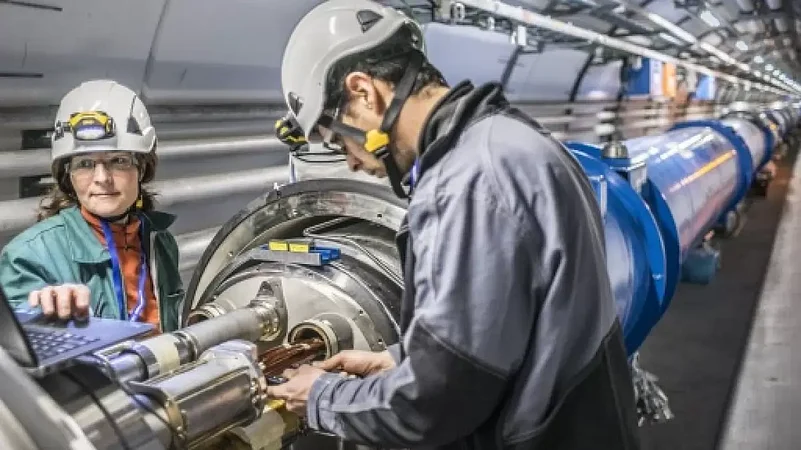Scientists at Fermilab near Chicago are uncovering possible evidence of a potential new force of nature by observing muons' unconventional behavior, deviating from the current sub-atomic theory. Although compelling, further data is needed to confirm this revolutionary discovery. The revolutionary study carried out as part of the "g minus two (g-2)" experiment has sparked heightened enthusiasm within the realm of particle physics.
All the forces condense into four categories: gravity, electromagnetism, strong, and weak forces, governing universal interactions. Except for gravity, the prevailing understanding of particle physics, the Standard Model, encompasses these forces, clarifying our understanding at small scales. However, the Standard Model remains incomplete, as concepts like the Higgs boson and dark energy are not explained by it.
The Muon g−2 experiment, tracing its origins to CERN's 1950s research, holds promise for resolving these anomalies. Muons, akin to electrons but more massive, offer a pivotal clue. Their unique behavior observed using a 14-meter magnetic accelerator, suggests an anomalous magnetic dipole moment. Unexpectedly, the muons wobbled faster than predicted by the Standard Model. This intriguing phenomenon, although seemingly minor, could unveil a mysterious influence on particles, potentially leading to a new realm of physics. Prof. Graziano Venanzoni of Liverpool University suggests this hints at an unseen "fifth force," a potential scientific milestone rivaling Einstein's theories. Such a force, unaccounted for in the Standard Model, could address cosmic enigmas like galaxies' accelerating separation driven by mysterious dark energy and rapid galactic spins attributed to unseen dark matter. The quest continues with efforts to refine experiment precision.
Starting in 2021, the research team has diligently amassed additional data and effectively halved measurement uncertainties, as noted by Dr. Brendan Casey, a senior scientist at Fermilab. Their pursuit has led to groundbreaking explorations, surpassing previous precision levels.
Although compelling, the Fermilab team lacks definitive confirmation, hindered by increased uncertainties arising from advancements in theoretical physics. This adjustment has altered the landscape for experimental physicists, shifting their reference points. Confident in acquiring the necessary data, the researchers anticipate that the next two years will bring a narrowed theoretical uncertainty, aligning with their goals. Nevertheless, competition looms from Europe's Large Hadron Collider (LHC), where Dr. Mitesh Patel, among numerous physicists, strives to uncover Standard Model flaws. Patel asserts that experimental deviations from the model hold the potential for an unprecedented breakthrough, ushering in a revolution in our understanding of physics.
Fermilab anticipates that their forthcoming results will be an "ultimate showdown" between theoretical predictions and experimental findings, potentially unveiling previously unknown particles or forces, and reshaping the foundations of our comprehension.


























